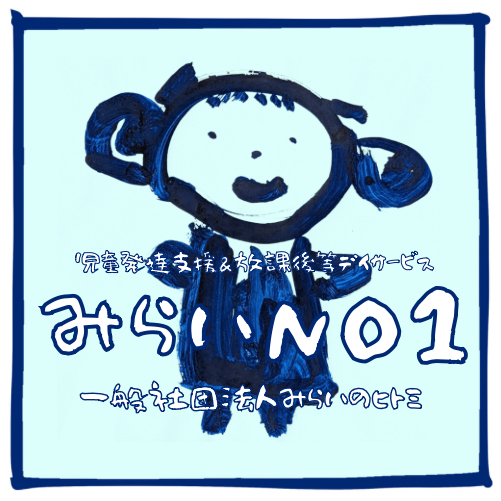Authored by Moya Lothian-McLean
Moya Lothian-McLean is actually a freelance blogger with excessive feedback. She tweets @moya_lm.
Precisely why aren’t we trying to see somebody with techniques that individuals in fact appreciate – and this get outcome?
You will find few things considerably terrifying than attempting online dating sites the very first time. I nonetheless keep in mind with frightening quality my first-time. We invested the most important 15 minutes associated with the big date hiding in a bush outside a pub, seeing my personal go out text us to inquire when I’d be acquiring indeed there.
5 years on, i’m somewhat less horrified from the prospect of resting across from a complete stranger and creating small-talk for a couple of days. But while my personal confidence from inside the matchmaking scene has expanded, it might manage that the exact same can’t become mentioned for many individuals.
A YouGov research – of mostly heterosexual people – commissioned by BBC Newsbeat, uncovered that there’s a life threatening schism in the way UK millennials wish fulfill a partner, when compared to just how they’re really supposed about any of it. Relationships applications, it emerges, will be the the very least favored solution to see someone to continue a romantic date with (fulfilling anyone of working came in at second put). Swiping tiredness degrees were at her highest among females, too. Nearly 50 % of those surveyed placed Tinder etc. in the bottom with regards to stumbled on her best manner of finding Prince Just-Charming-Enough.
You might also like
Online dating trends: whelming will be the narcissistic app behaviour we love to hate, here’s how to approach they
So folk don’t like concept of beginning her romantic trip by moving through a catalogue of countless options that reveals most people are replaceable. Fair adequate. What makes the outcome interesting is that – despite this choosing – 53per cent of 25- to 34-year-olds mentioned they actually do need applications from inside the search for somebody.
A third of individuals mentioned they utilized internet dating apps simply because they are ‘too bashful’ to speak to anyone in actuality.
Thus what’s taking place? Relationship applications happened to be likely to herald a new years. A-sea of abundant fish, whoever best tunes on Spotify happened to be the same as your own (Mount Kimbie and Nina Simone? Soulmates). The capacity to smell around misogynists prior to when 30 days into a relationship, by allowing these to expose themselves making use of introduction of expressions like “I’m a gentleman” within bio. Almost-instant familiarity with whether you’d conflict over politics owing to emoji deployment.
However it featuresn’t resolved in that way. Hope (a romantic date each and every day from the few days with a succession of appealing people) compared to real life (hungover Sunday scrolling, stilted conversation and some body kept clinging while the additional gets as well bored to publish ‘lol’ back) provides triggered a wave of resentment amongst millennials. But at the same time, much more folk perform their individual and pro lives through smart phones – Ofcom states that 78per cent of British people have a smartphone – the addiction about hated applications to point all of our love everyday lives is now previously healthier.
The problem seems to lie with what we expect from dating programs. Casey Johnson had written concerning the ‘math’ of Tinder, exhibiting that it takes about 3,000 swipes to “maybe buy one person’s ass during the couch across from you”. The content got damning with its calculations. Johnson concluded that the deficiency of ‘follow-through’ on matches had been since most group on Tinder were looking for easy validation – when that first match were generated, the wanting ended up being pacified without some other actions used.
Objectives of online dating applications vs the fact has caused a trend of resentment amongst millennials.
However recognition of a complement is all people call for from dating programs, next what makes pleasure grade perhaps not larger? Because in fact, it’s not all they demand; exactly what they’re really finding is actually a relationship. 1/3rd of 25- to 34-year-olds said their energy used on apps was at quest for a causal partnership or affair, and a further 40percent stated these were on the lookout for a lasting commitment.
One in five even reported that they had really entered into a long-lasting partnership with someone they met on an app. Inside the huge scheme of issues, one out of five is fairly close chances. So just why is the basic environment of despair encompassing applications thus pervasive?
“The fundamental problem with online dating applications is actually social lag,” concludes writer Kaitlyn Tiffany.
“We needn’t had these power tools for long adequate to bring a clear idea of exactly how we’re supposed to make use of them.”
“The trouble with internet dating programs is all of our understanding of how exactly to navigate all of them”
Tiffany fingernails it. The problem with online dating programs is the comprehension of tips browse all of them. Online dating sites ‘s been around since Match.com spluttered into actions in 1995, but matchmaking using specific smartphone apps keeps best been around when you look at the mainstream since Grindr initially hit cell phones, in ’09. The birth of Tinder – the first genuine dating application behemoth for straights – was a mere six years ago. We nonetheless grapple with ways to use the net alone, and therefore remembers their 30th birthday celebration next year. Could it be any surprise everyone aren’t but au fait with the way they should approach online dating apps?
Here’s my personal proposal: software should always be considered an introduction – like seeing individuals across a club and thinking you love the appearance of all of them. Messaging on an app must be the equal to providing somebody the eye. We’re supposed incorrect by investing hrs into this initial phase and mistaking it for a constructive area of the online dating procedure.
The regular connection with software users I’ve spoken to (alongside my own personal experience) is always to get into an orifice salvo of communications, graduating to the swapping of cell phone numbers – in the event the painstakingly created connection will be each other’s liking. What follows is an endurance test of up to a few days of non-stop texting and/or investments of memes. Ultimately, your whole digital relationship will sometimes sputter to a halt – a weary heart stops replying – or one-party plucks in the bravery  to inquire about others for a glass or two. The thing is: hardly some of this digital foreplay means real world expertise.
to inquire about others for a glass or two. The thing is: hardly some of this digital foreplay means real world expertise.
